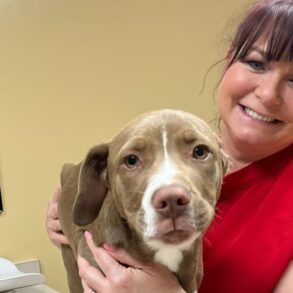
Librela is a monoclonal antibody treatment from Zoetis and labelled for dogs older than one year and of any weight to treat OA pain. According to Zoetis in 2023, of the nearly 4 in 10 dogs that suffer from OA pain, only about a third of dogs get treatment.
Librela was approved by the FDA in late May of 2023 and approved for use in Europe in 2020.
The FDA’s Standard Adverse Event Review summarizes adverse events reported between Librela’s approval date in May 2023 through March 2024. While most reports were submitted by veterinarians or other health care professionals, reports can be submitted by animal owners as well. Reported signs are then assessed as probably drug-related, possibly drug-related, unlikely to be drug-related, or insufficient information to make an assessment.
According to the release,”adverse events identified and analyzed include: ataxia, seizures, other neurologic signs, including but not limited to, paresis, recumbency, urinary incontinence; polyuria, and polydipsia. In some cases, death (including euthanasia) was reported as an outcome of these adverse events.” In the Standard Adverse Event Review, the most frequently reported clinical signs were ataxia, anorexia, and lethargy.
Officials also recommended adding a Post Approval Experience (PAE) section to the current Librela label that advises of these potential adverse effects.
In response to the FDA’s letter, Richard Goldstein, DVM, DACVIM, DECVIM-CA, Global Chief Medical Officer and Head of Medical Affairs for Zoetis, said that he believes that the FDA felt there was now “enough information” about potential adverse effects associated with the use of Librela that is not on the current label and not known at the time of official approval to send this communication. Goldstein emphasized that Zoetis is watching the reports closely and taking all new information seriously.
When asked if Zoetis recommends any further guidance on case selection based on the reported adverse event data, Goldstein said that the contraindications for use remain the same. “It’s not to be used in pregnant or lactating dogs or in puppies,” he said. “Those are clear contraindications.” He added that it is also essential for veterinarians to confirm that their patients’ pain is associated with osteoarthritis and not another cause, since the drug’s only indication is for the treatment of pain associated with osteoarthritis.
“We should do our best to diagnose every possible condition we can prior to prescribing Librela,” Goldstein added, “and then have a risk benefit conversation with the pet owner.” While not every patient is an ideal candidate for this treatment, Goldstein reaffirms his confidence in the safety and efficacy of Librela. “We stand behind it. I stand behind it myself as veterinarian.”
Goldstein encourages veterinarians looking for more guidance on the use of Librela to consult with their local representative and professional services veterinarian.” “There’s millions of positive stories of dogs that have their lives have been changed for the better,” he said. Veterinarians can connect with Goldstein directly through his regular online office hours and interact with educational content on the Zoetis website.
If a dog under your care experiences adverse effects
The FDA added that if a dog you are taking care of experiences adverse effects while taking Librela, you should report the information to Zoetis. Zoetis is required to submit those reports to the FDA. You can report the adverse reaction by calling 1-888-963-8471.
The FDA says you can also report any adverse effects directly to them at www.fda.gov/reportanimalae, and to “include, if available, a full medical history, how many times the dog has received Librela, and the lot number on the vial used.”
Note to readers: Zoetis participates in AAHA’s Strategic Alliance Program at the Sapphire level, supporting the organization through education and guidelines sponsorship, exhibiting, and advertising.
Photo credit: JHVEPhoto via iStock Editorial/Getty Images Plus
Disclaimer: The views expressed, and topics discussed, in any NEWStat column or article are intended to inform, educate, or entertain, and do not represent an official position by the American Animal Hospital Association (AAHA) or its Board of Directors.
This post was originally published on this site be sure to check out more of their content.











































